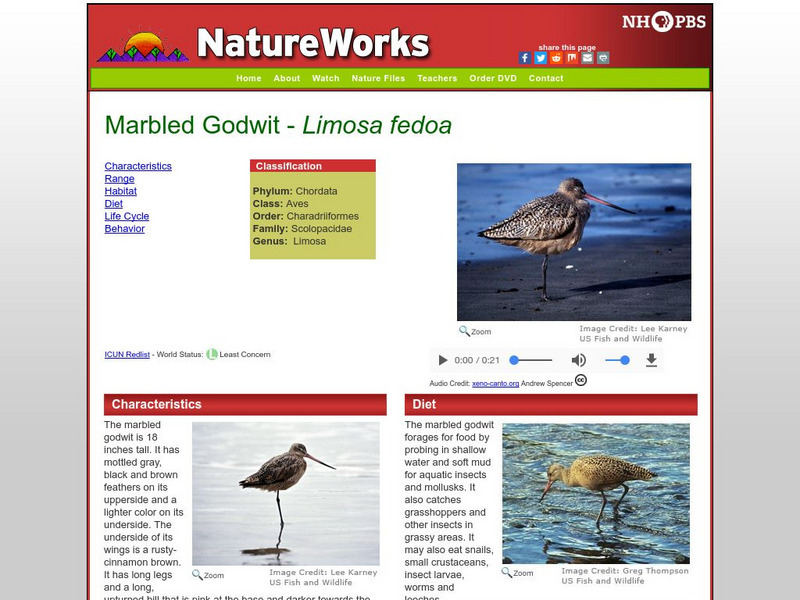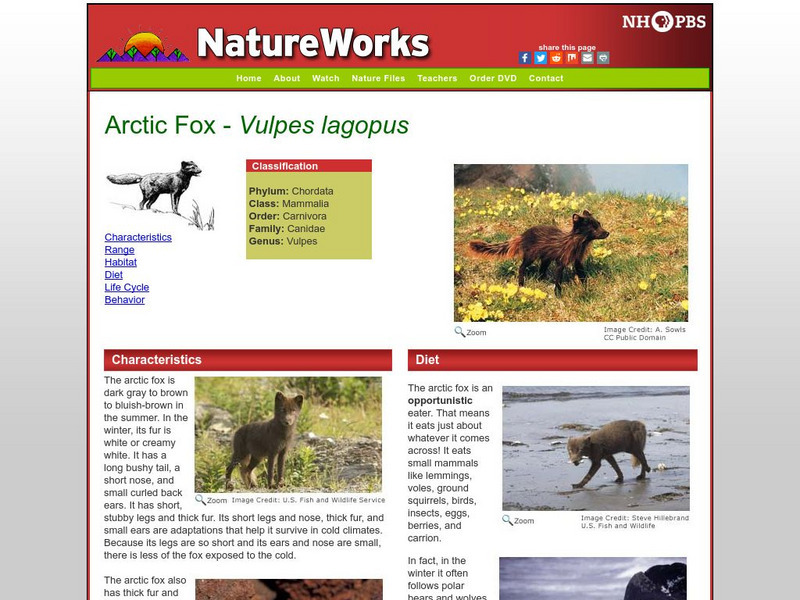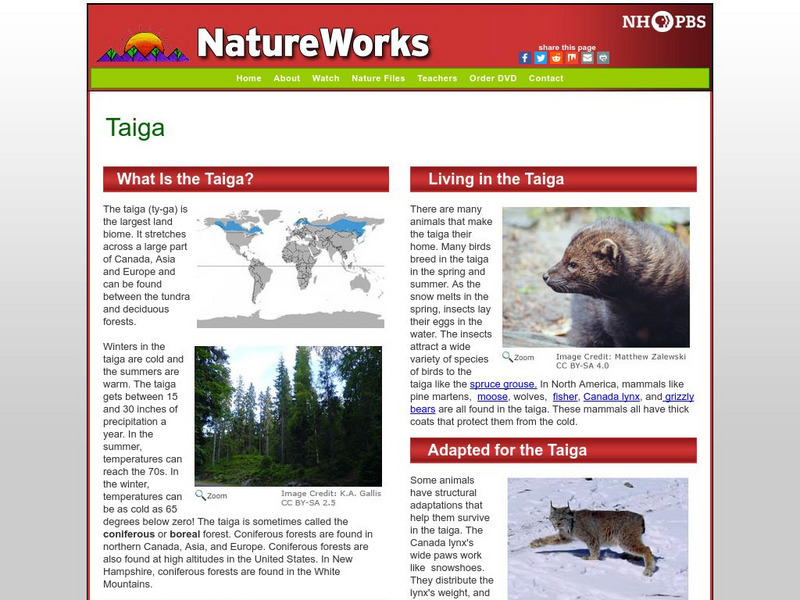PBS
Nh Pbs: Nature Works: Marbled Godwit
This site created by NatureWorks reveals the natural history of the Marbled Godwit, a North American shore bird. The content of this resource includes a look at this species' characteristics, range, habitat, diet, life cycle, and behavior.
PBS
Nh Pbs: Nature Works: Little Blue Heron
Find out more about the Little Blue Heron through this educational resource. The content of this source includes information on behavior, characteristics, life cycle, diet, habitat and range.
PBS
Nh Pbs: Nature Works: Pied Billed Grebe
Explore the lifestyle of the Pied-Billed Grebe when you check out this educational site. The content of this site features information on characteristics, range, life cycle, diet, habitat, and behavior of this aquatic bird.
PBS
Nh Pbs: Nature Works: Common Snipe
This site created by NatureWorks focuses on the Common Snipe. The content of this resource includes a look at this species' characteristics, range, habitat, food, and more.
PBS
Nh Pbs: Nature Works: Bearded Seal
Have you ever seen a photograph of a bearded seal? Come and learn more about this fascinating mammals. Students will find information ranging from characteristics, diet, reproduction, habitat and more.
PBS
Nh Pbs: Nature Works: Arctic Fox
Learn more about the arctic fox through this clear and concise site. This resource features photos, characteristics, behavior information and more about this fascinating mammal.
PBS
Nh Pbs: Nature Works: Taiga
Here you can find a great fact sheet on the taiga biome! Learn what the taiga is, where it's located, and the types of plants and animals that live there!
PBS
Nh Pbs: Nature Works: Wolverine
Study the world of the Wolverine when you explore this informative source. The content of this resource includes characteristics, life cycle, diet, habitat, behavior and more of this member of the mustelid family.
PBS
Nh Pbs: Nature Works: Angiosperms
This colorful site focuses specifically on the role of the flower, an explanation of pollination, and the difference between dicots and monocots.










